ACR Designated Comprehensive Breast Imaging Center
Patient safety and quality care
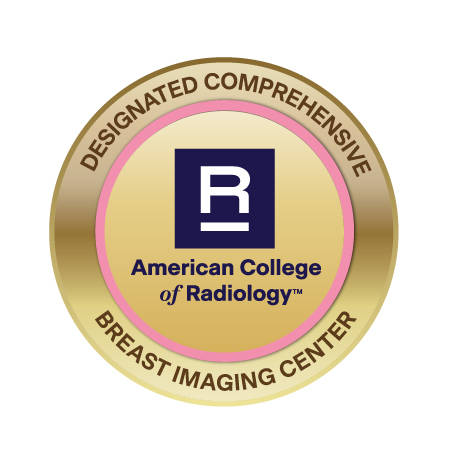
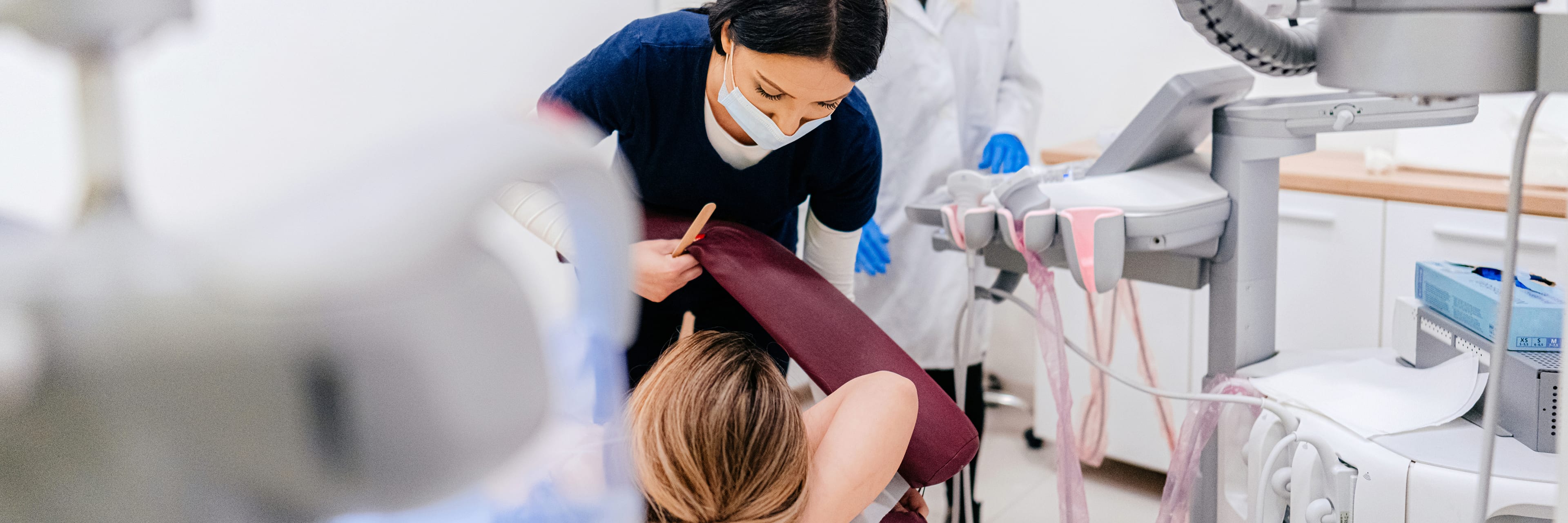
Breast health begins with awareness.
3 ways to make an appointment:
Fill Out Appointment Request Form
or
Existing Baptist Health patients can schedule a specific date & time using My Baptist Chart.
Breasts change over time, so routine exams, self-exams, and annual screening can help track what's normal for you. Irregularities such as a rash or unidentified lump call for immediate attention.
At Baptist Health, you'll find a variety of screening options, along with comprehensive, leading-edge diagnostic services, such as breast ultrasound, MRI and biopsy capabilities. These diagnostic tests can often be done the same day a suspicious result is found on a mammogram.
The American College of Radiology (ACR) and Society of Breast Imaging (SBI) recommend that women begin getting annual mammograms at age 40.
Find a location for for your annual preventive screening (including 3D mammograms).
For women who don’t have any symptoms of a breast tumor or cancer.
Schedule an advanced diagnostics screening.
For women who have symptoms of a breast tumor or cancer, or abnormal or inconclusive results from the first screening.
3 ways to make an appointment:
Fill Out Appointment Request Form
or
Existing Baptist Health patients can schedule a specific date & time using My Baptist Chart.
Patient safety and quality care

Talk to your physician about what type of mammogram is right for you.

Are any of these beliefs keeping you from regular 3D screenings?
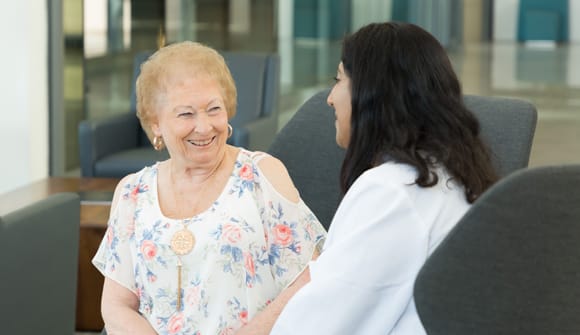
Nollie's 'nagging voice' pushed her to schedule a life-saving 3D mammogram.
We explain the benefits of 3D.
Our top docs answer your most asked questions.
Half of all women in the U.S. have dense breasts. Although common, many women aren't sure what that means.
Breasts are comprised of two types of tissue: dense tissue (fibrous and glandular) and non-dense, fatty tissue.
Having dense breast tissue makes it harder to detect breast cancer because it's difficult to see through on a mammogram. When a woman's breast has more dense tissue than fatty tissue, the accuracy of the mammogram is lower.
According to the National Cancer Institute, women with dense breast tissue have a higher risk of breast cancer than women with fatty breasts, and the risk increases with greater breast density.
If you have dense breasts, understanding your breast cancer risk can help you and your physician make the best treatment decisions.
The first step to finding out if you have dense breasts is to have an annual mammogram, recommended for women 40 and older. For women with dense breast tissue, other screening methods for detecting breast cancer may be recommended by your physician.
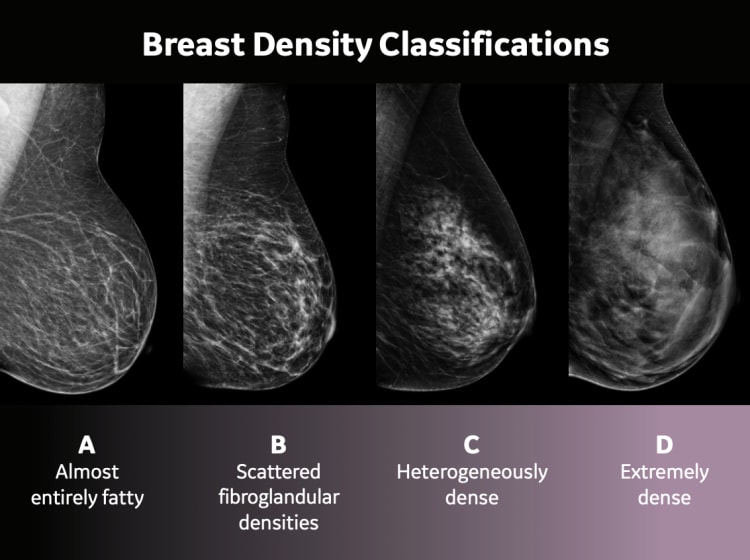
Baptist Health offers additional screening options for women with dense breast tissue, including automated breast ultrasounds.
More than ever, women are taking a proactive approach to their breast health. At our Breast Screening and Prevention Clinic at Baptist MD Anderson Cancer Center, we help women identified as “high risk” get a true assessment of their breast cancer risk. For more information or to make an appointment at the Breast Screening and Prevention Clinic, call 904.202.7300.
If you or a loved one has recently discovered a lump in the breast, had a suspicious mammogram or been diagnosed with breast cancer, Baptist MD Anderson Cancer Center in Jacksonville is here to offer hope, compassion and care.
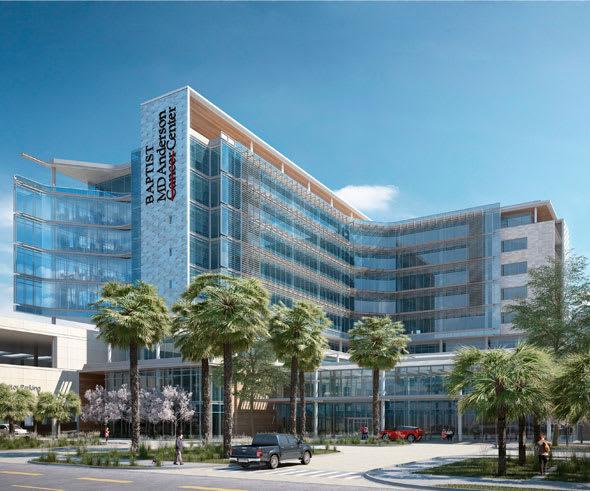

Don't let cost keep you from a lifesaving mammogram screening!
If you do not have insurance and are in need of a mammogram, Pink Ribbon Jax has donated 1,400 no-cost mammograms to Baptist Health for qualified community members.
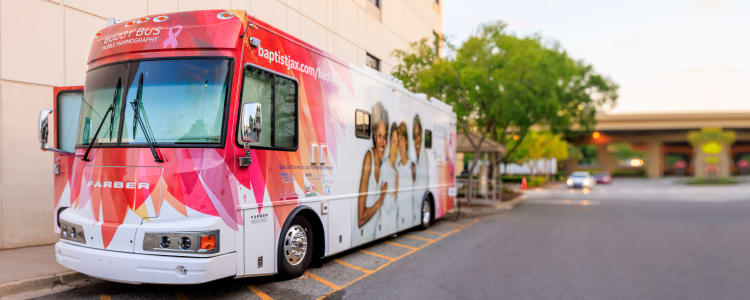
To improve access to mammograms, Baptist MD Anderson Cancer Center and First Coast News partnered together to create the Buddy Bus.
Organize a group and the Buddy Bus will come to your office, event or venue to provide 3D screening mammograms in a convenient and comfortable setting.
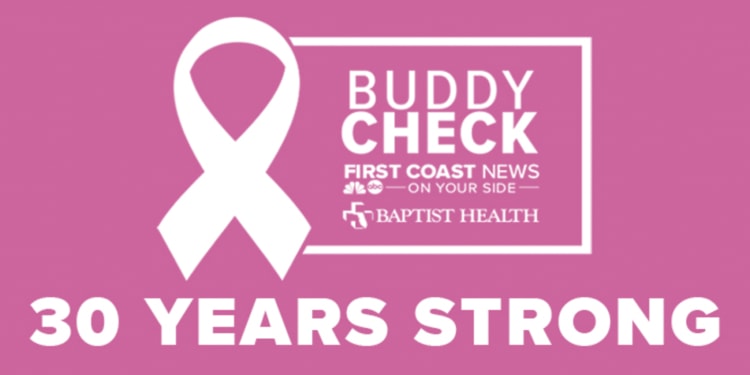
Baptist Health physicians and staff, in collaboration with First Coast News anchor Jeannie Blaylock, created this self-exam program.
Get your free Buddy Check 12 kit with step-by-step instructions for breast self-examination and self-awareness.